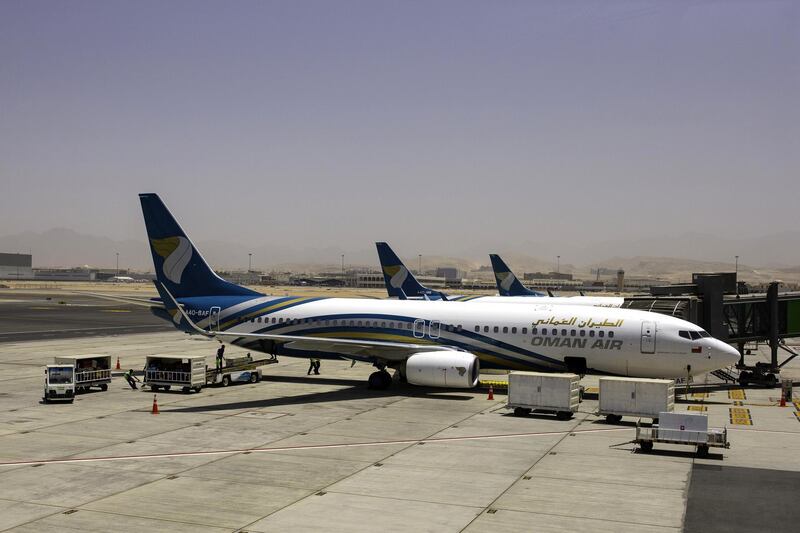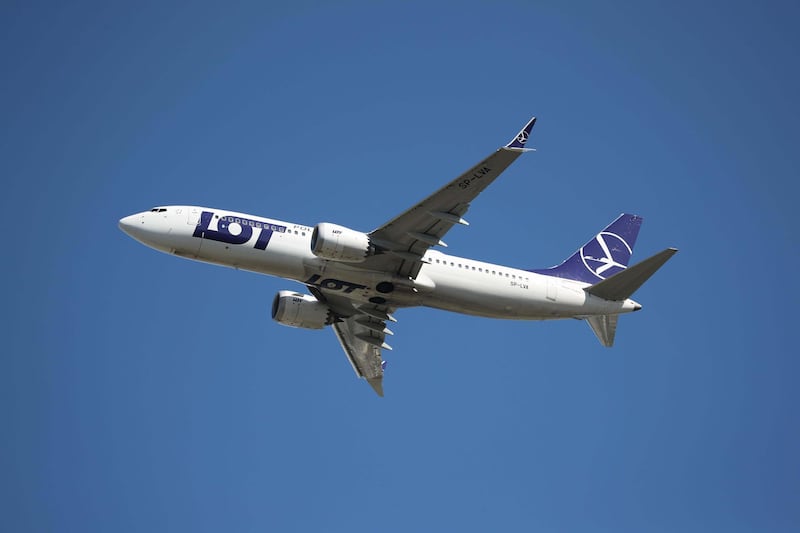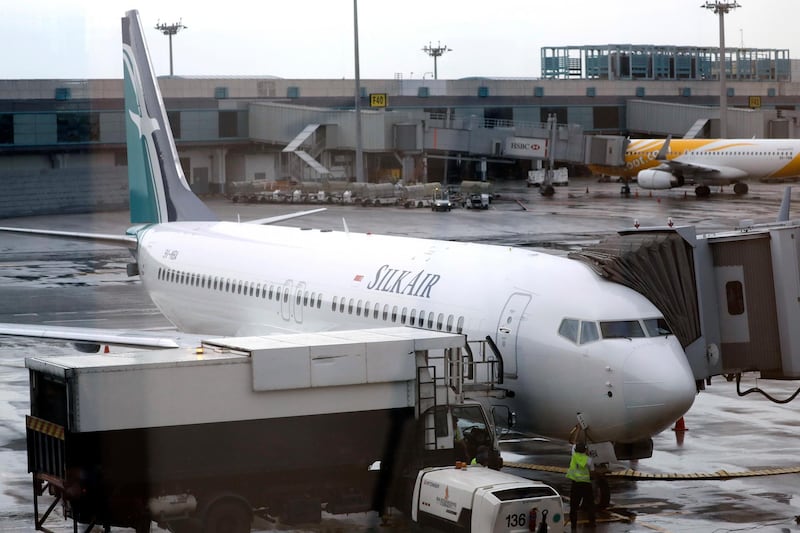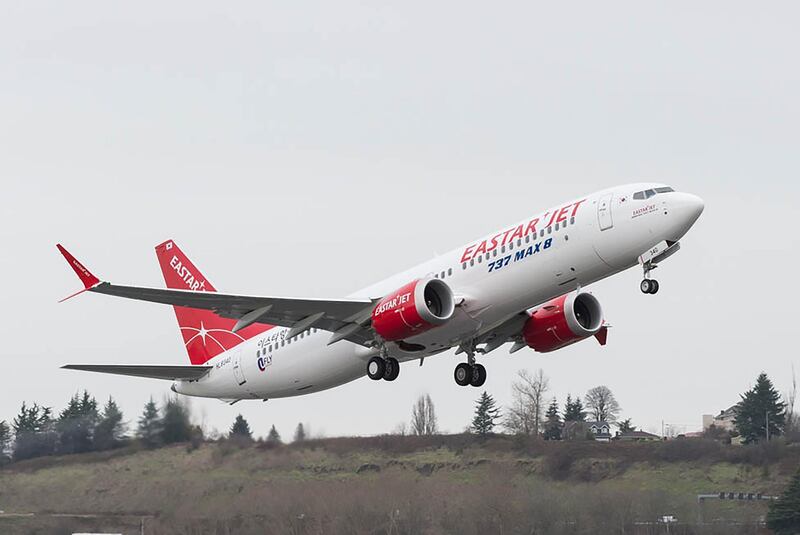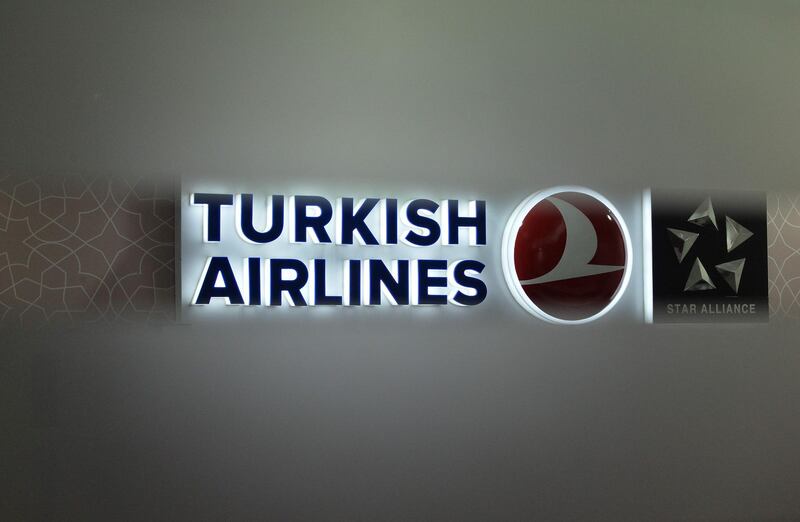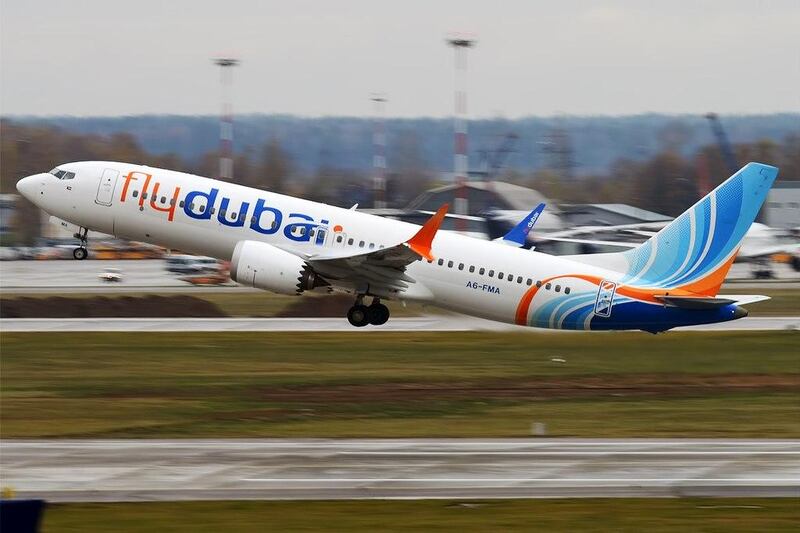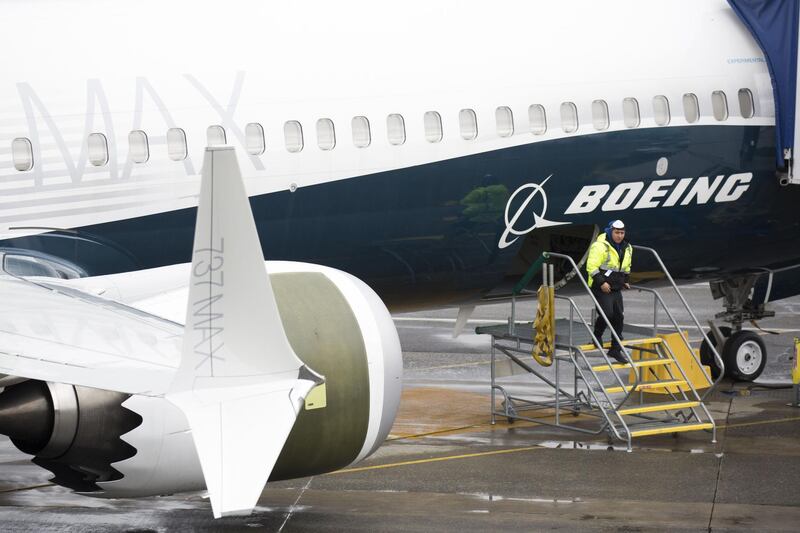Boeing could face millions of dollars in compensation claims as airlines recover the mounting costs of grounded 737 Max jets, delivery delays and leasing alternative planes after the fatal crash in Ethiopia, analysts said.
The cost to Boeing is at least $100 million (Dh367m) a month just from reimbursing carriers and this could increase by $12m each month that 737 Max deliveries are delayed, George Ferguson, senior aerospace analyst at Bloomberg Intelligence told The National. JP Morgan estimates the monthly cost at about $115m while Frost and Sullivan estimates nearly $170m.
With more than 350 Boeing 737 Max jets now idle, there are not enough used or parked planes in the market to replace them and airlines will look to the US plane maker to recover their costs.
"I expect any airline that is at a loss due to a grounded Max or missed delivery will look to Boeing for compensation," Mr Ferguson said. "
After similarities arose between the Ethiopian Airlines and Lion Air crashes, regulators around the world grounded the 737 Max jets and Boeing temporarily halted deliveries of its best-selling aircraft that was intended to be the future industry workhorse. The delivery delays, pending the investigation, could cost Boeing about $400m a month in cash flow loss in addition to compensation fees, according to Bloomberg Intelligence.
Though Texas-based Southwest Airlines, the biggest buyer of the revamped single-aisle jet, has not voiced any intent to seek compensation, Oslo-based Norwegian Air was among the first to announce it will seek reimbursement from Boeing for costs and lost revenue after grounding the 18 re-engined 737 Max jets in its fleet.
The grounding will have a minimal financial impact on the airlines operating the planes-- as they lease alternative jets to fly according to schedule or cancel some flights then get reimbursed by Boeing, analysts said. However, they will feel the impact the longer the ban lasts and as the peak summer travel period approaches.
"It will hurt more as we get into summer flying season, and this is when airlines make their money," Mr Ferguson said. "So if this isn't sorted by then, I am a lot more worried for airlines in financially difficult straits."
While the Max is currently only about two per cent of the narrowbody fleet globally and therefore its effects are now limited, that figure should grow to about five per cent by year-end based on planned deliveries so "it will hurt more" as the year goes on and will certainly clip some planned expansion, he said.
The extent of the financial impact to an airline will depend on the number of Maxs in its fleet, how long the grounding lasts and how they operate the jets, aviation consultant John Strickland said.
"It's not a black and white simple exercise to put another plane in service: it depends on availability, payload performance and lots of commercial considerations," Mr Strickland said. "The Max can fly further with more payload than its predecessor."
A shortage of parked narrow-bodies to replace the grounded jets means less expansion this summer and therefore airfares could rise, boosting profitability.
____________
World's Boeing 737 Max 8 fleet
____________
"As most short-haul markets suffer from overcapacity, this could actually help airline profitability this summer," Mr Ferguson said. "And if your a struggling airline, lessors are still likely to lease you an airplane if you can show that Boeing will be paying for the lease."
Boeing has "significant" financial resources to weather the impact from the Max grounding with $8.56 billion of cash as of December 31, according to Moody's Investor Service. It expects the Max Program will overcome the near-term challenges from the twin crashes and does not foresee wholesale cancellations of orders.
However, the confidentiality of sales contracts, the unknown duration of the grounding and incomplete investigation of the crashes complicate estimates of Boeing’s financial risk, it said.
The bigger issue for Boeing beyond the compensation claims is reputational damage and attracting future orders for a revamped 737 jet, analysts said.
"They'd have to go harder with discounts if they want to win business," Diogenis Papiomytis, Frost and Sullivan's global program director for commercial aviation, said. "If they want to win more business and orders, the biggest cost to them is the number of orders from Maxs will drop, future orders will be hurt and so they have to provide even steeper discounts to win them over."
Mr Papiomytis estimates the cost to airlines of grounding the jet from March until May, when a software upgrade is expected to roll out, could reach $500m over the three months. This excludes cost of network disruptions.
If the grounding persists until the end of the year, costs could jump to $4bn, he said.
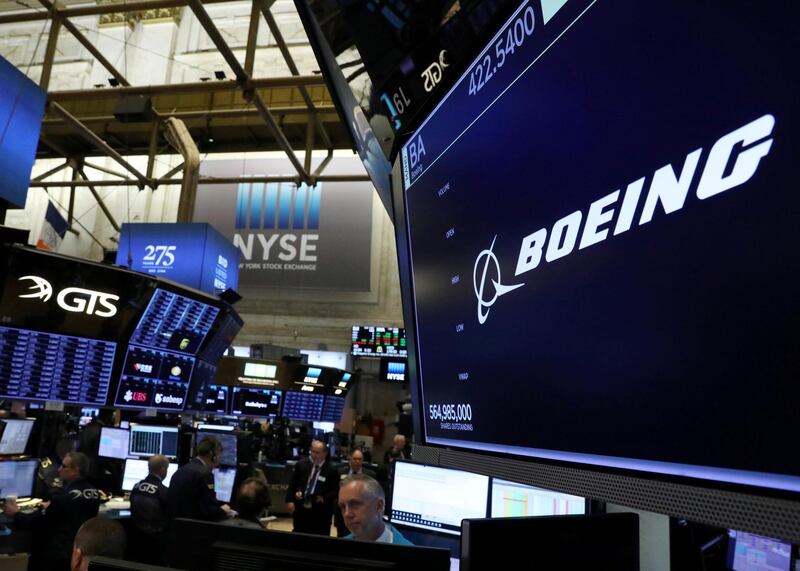

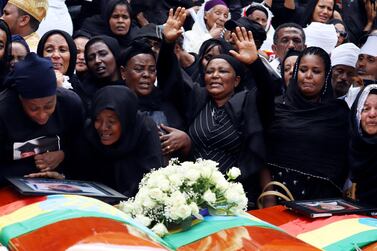

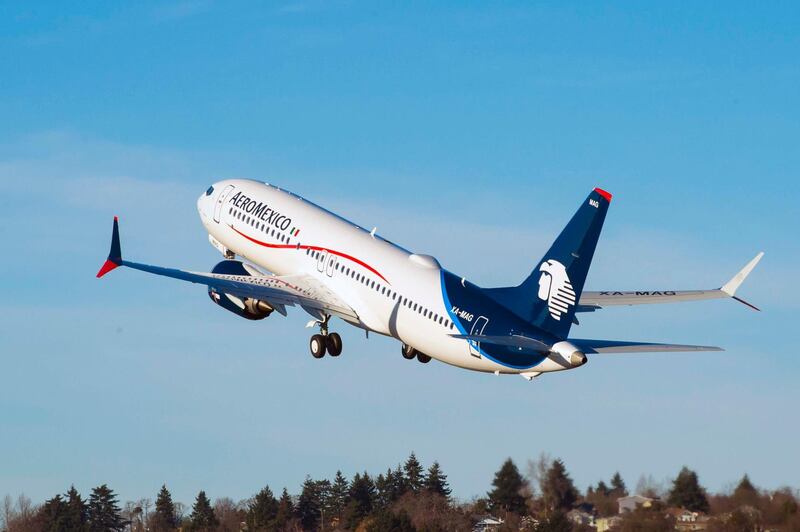
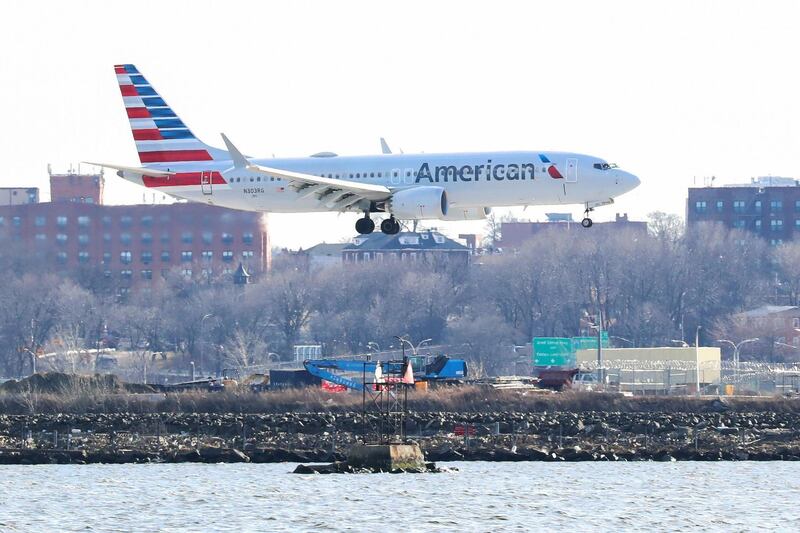
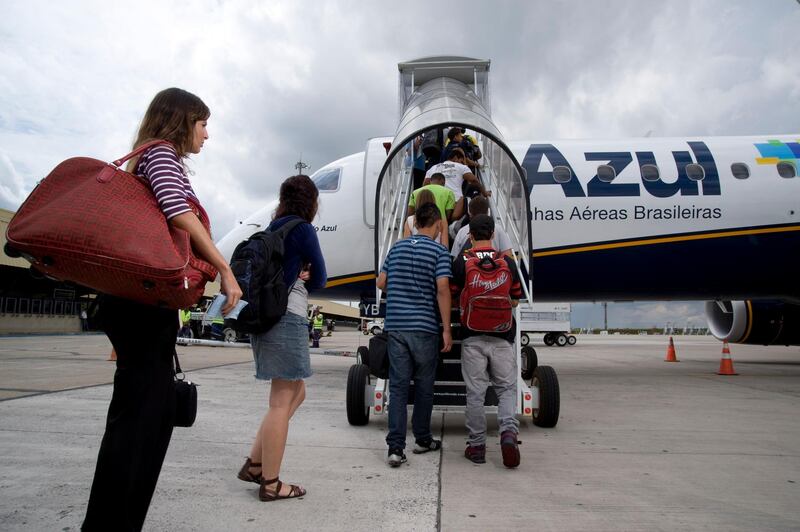
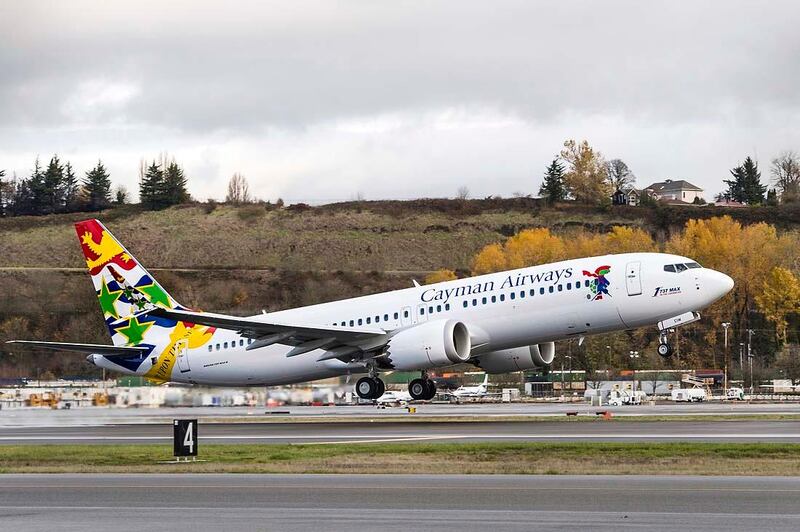
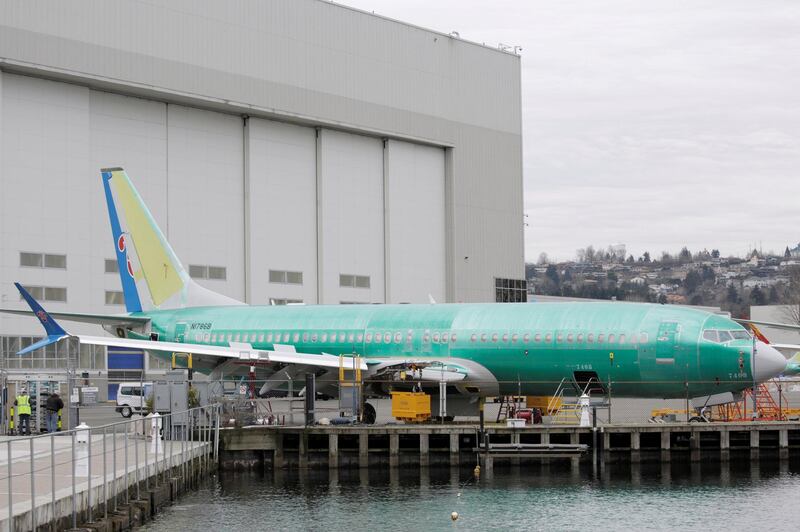
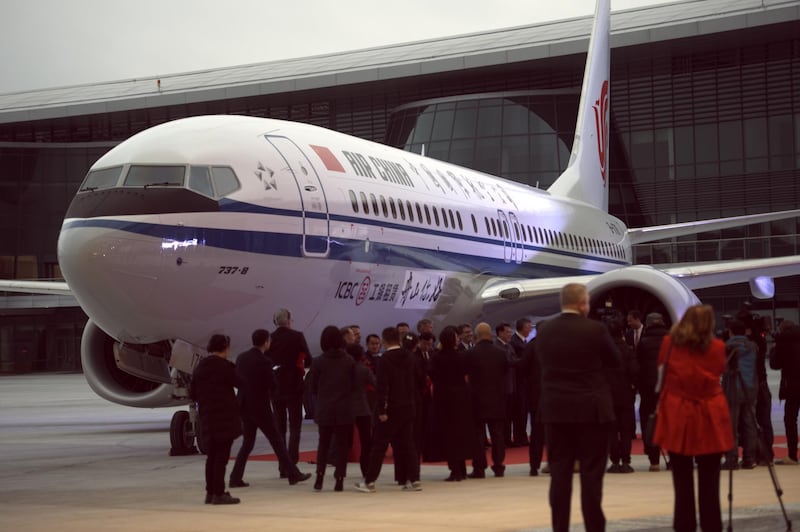
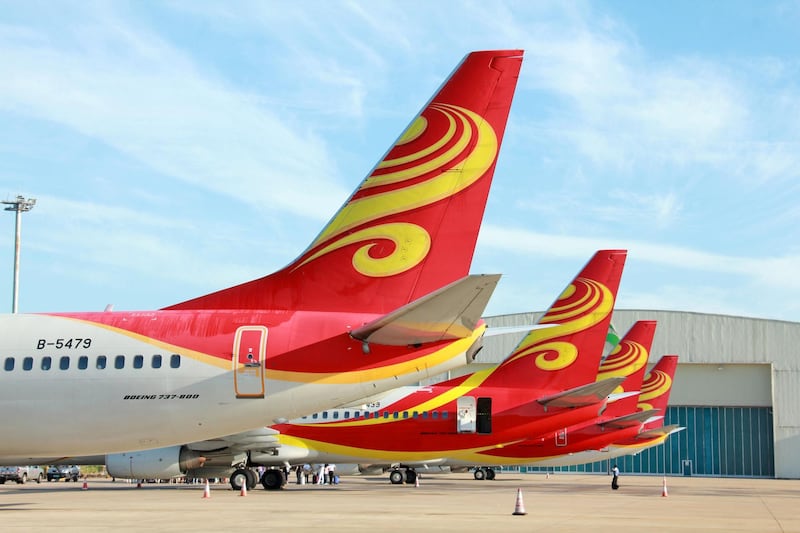
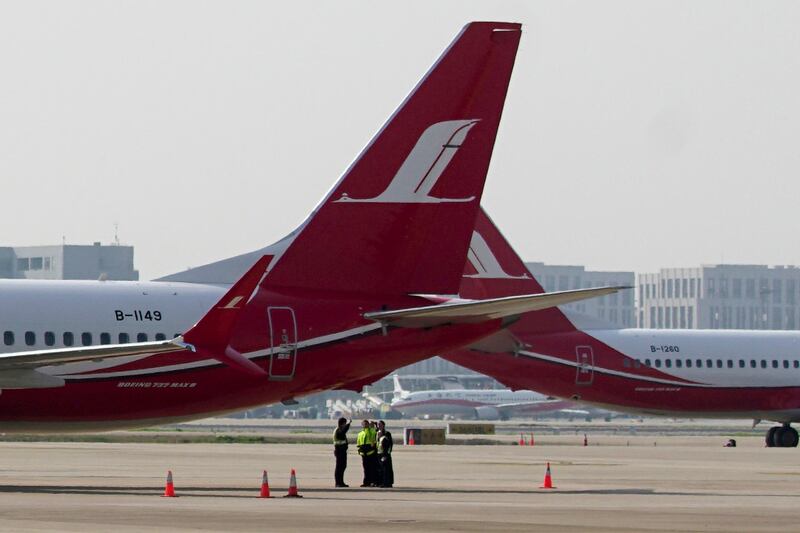
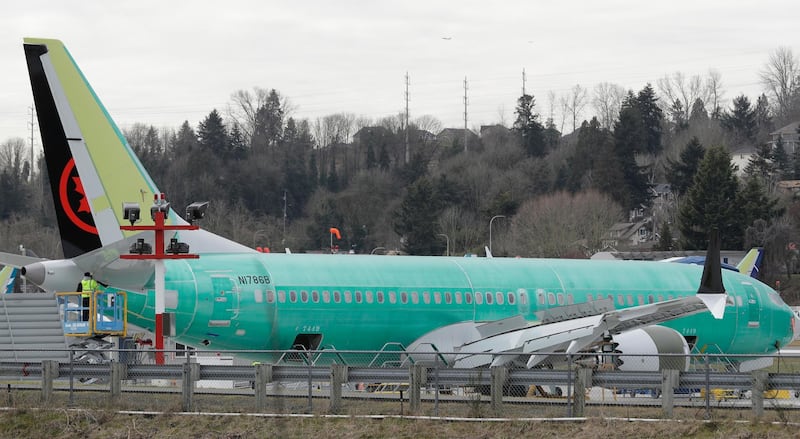
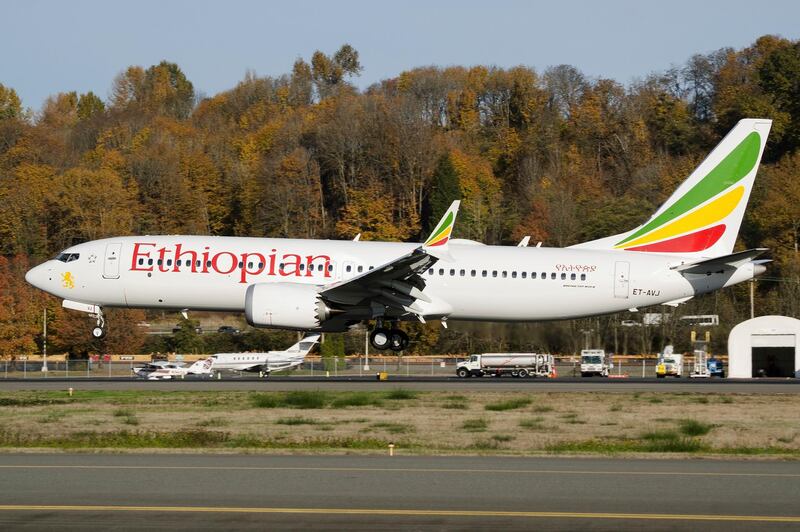

![Boeing [NYSE: BA] and Icelandair today celebrated the delivery of the airline's first 737 MAX airplane as the Icelandic carrier seeks to grow and renew its fleet and enhance its trans-Atlantic operations. The airplane is seen here flying over Boeing's Seattle Delivery Center. (Dean Jones photo)](https://thenational-the-national-prod.cdn.arcpublishing.com/resizer/v2/SNYC2NBHFXHZCQFNH2HEYTFTAQ.jpg?smart=true&auth=cd43b2fbc4db94355d97af325712aa8b7ee8a1c3103b721dca231beb7de6e2c1&width=800&height=533)
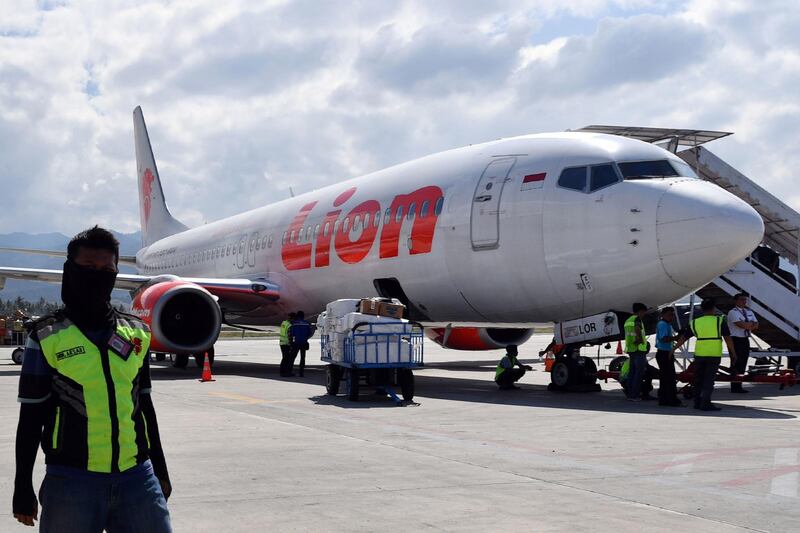
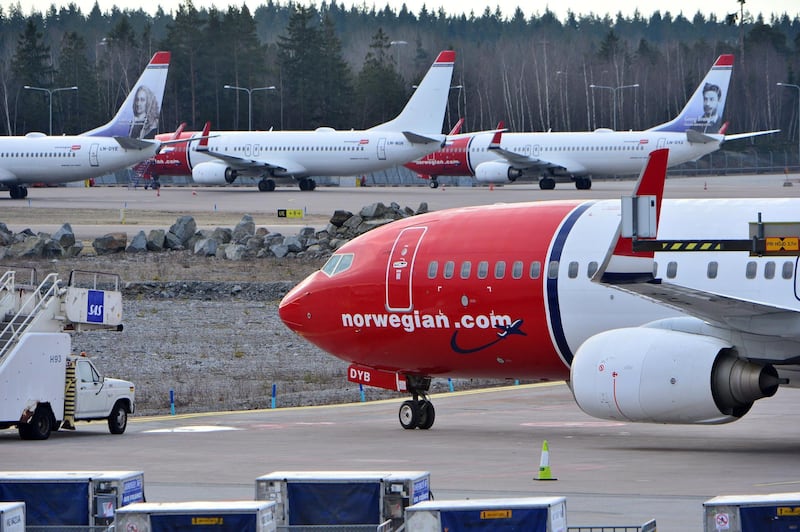

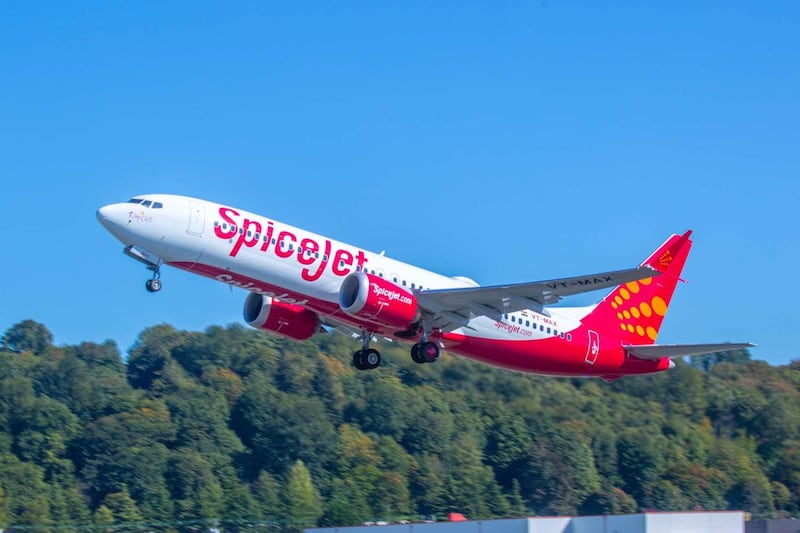
![Boeing [NYSE:BA] today delivered the first 737 MAX for Royal Air Maroc, which plans to use the fuel-efficient, longer-range version of the popular 737 jet to expand and modernize its fleet. Paul C Gordon / Boeing](https://thenational-the-national-prod.cdn.arcpublishing.com/resizer/v2/JQFZTTCGBDDZKY7HYEJM2T7XJA.jpg?smart=true&auth=7df86a60b42106a230750d4934f182472c5b93acd70579d1d9ac3847ef00652b&width=800&height=532)
